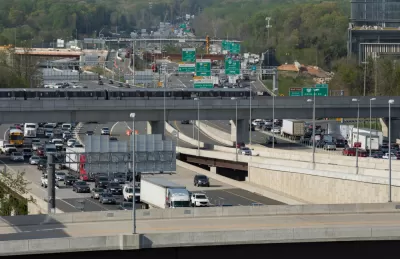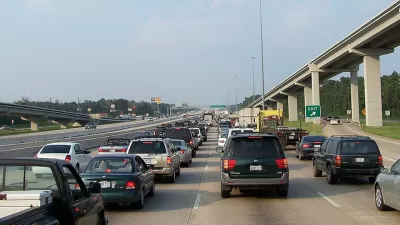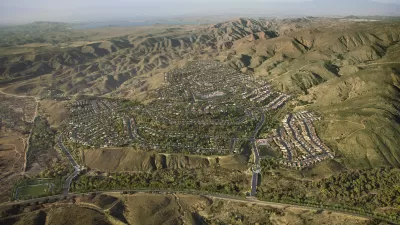A study by David C. Phillips, associate professor of economics at the University of Notre Dame, reveals hiring prejudice against people who would have to commute farther to work, in addition to bias against people with "black sounding" names.

"Low-wage employers in Washington, D.C., discriminate against applicants with longer commutes and those with stereotypically “black” names," reports Denise-Marie Ordway, previewing a study [pdf] forthcoming in the Journal of Human Resources.
"The study finds that when presented with otherwise similar resumes, hiring managers who are trying to fill a position that requires only a high school diploma are less likely to call back applicants who live farther away. Applicants from distant communities get 14 percent fewer callbacks than those living nearby," according to Ordway.
The finding about a preference for hiring people with shorter commutes is separate from the study's other finding: that people with stereotypically black sounding names are also less likely to receive hiring call backs.
The author of the story, David C. Phillips, views these findings as likely to mirror similar realities in other cities. "[Phillips] suggests that policies aimed at moving lower-income adults closer to jobs or better public transportation systems may improve their chances of securing work," according to Ordwell. The article also clearly stands the new study in contrast to a 2007 study by scholars at the National Bureau of Economic Research and Harvard University finding that "public housing residents did not improve their work status after moving to higher-income areas."
Phillips also presents these findings as troubling in light of an increasing super commuters and low-income populations moving farther afield in metropolitan areas, drastically increasing commute trip lengths in the demographic.
The new study also isn't the first to find evidence of bias against super commuters. A Planetizen blog post by Shane Philips from February 2014 details the findings and implications of similar analysis conducted at Xerox Services.
FULL STORY: Some employers discriminate against applicants with longer commutes

Planetizen Federal Action Tracker
A weekly monitor of how Trump’s orders and actions are impacting planners and planning in America.

Chicago’s Ghost Rails
Just beneath the surface of the modern city lie the remnants of its expansive early 20th-century streetcar system.

San Antonio and Austin are Fusing Into one Massive Megaregion
The region spanning the two central Texas cities is growing fast, posing challenges for local infrastructure and water supplies.

Since Zion's Shuttles Went Electric “The Smog is Gone”
Visitors to Zion National Park can enjoy the canyon via the nation’s first fully electric park shuttle system.

Trump Distributing DOT Safety Funds at 1/10 Rate of Biden
Funds for Safe Streets and other transportation safety and equity programs are being held up by administrative reviews and conflicts with the Trump administration’s priorities.

German Cities Subsidize Taxis for Women Amid Wave of Violence
Free or low-cost taxi rides can help women navigate cities more safely, but critics say the programs don't address the root causes of violence against women.
Urban Design for Planners 1: Software Tools
This six-course series explores essential urban design concepts using open source software and equips planners with the tools they need to participate fully in the urban design process.
Planning for Universal Design
Learn the tools for implementing Universal Design in planning regulations.
planning NEXT
Appalachian Highlands Housing Partners
Mpact (founded as Rail~Volution)
City of Camden Redevelopment Agency
City of Astoria
City of Portland
City of Laramie





























